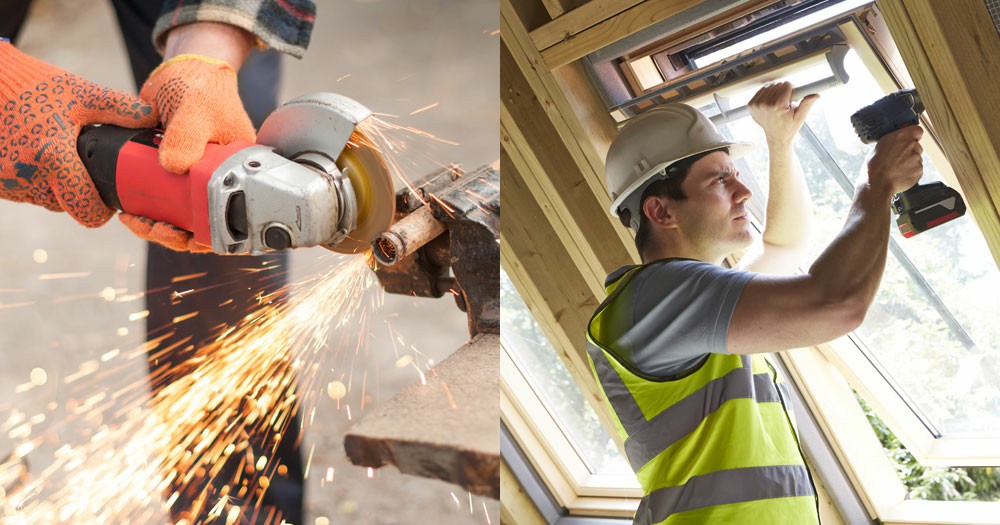The Essential Guide to Abrasive Wheels: Types, Uses, and Safety Standards in Ireland
Abrasive wheels are fundamental tools in many industries, offering precision and efficiency in cutting, grinding, and polishing tasks. Understanding the types of abrasive wheels and their specific applications is crucial for maintaining safety in the workplace, particularly in cities like Dublin, Cork, Galway, Limerick, and Waterford. This comprehensive guide will explore the various types of abrasive wheels, their uses, associated risks, and the importance of proper training.
Types of Abrasive Wheels
Abrasive wheels can be categorized into several types, each designed for specific applications. Here are the most common types:
- Cutting Wheels: These wheels are primarily used for cutting metals, plastics, and other materials. Typically thin and designed to make quick, efficient cuts.
- Grinding Wheels: Ideal for sharpening, shaping, or smoothing objects. They come in various sizes and grits, making them versatile for different tasks.
- Polishing Wheels: Used for achieving a smooth, shiny finish on surfaces. Polishing wheels are often used in automotive and metalworking applications.
- Flap Discs: Made by mounting multiple overlapping pieces of abrasive cloth on a backing plate. These are suitable for blending, finishing, and grinding.
- Diamond Wheels: Featuring synthetic diamonds embedded in the wheel material. They are acclaimed for cutting hard materials like ceramics and stone.
Abrasive Wheels Applications
Abrasive wheels are employed across various sectors. Here are some of their applications based on industry:
- Manufacturing: Used extensively for cutting and forming materials.
- Construction: Commonly used for masonry work and concrete cutting.
- Automotive: Essential for metal shaping, polishing car parts, and brake disc grinding.
- Metal Industry: Aids in metal preparation, finishing, and repair tasks.
Risks Associated with Abrasive Wheels
While abrasive wheels offer numerous benefits, they also present significant risks if not handled properly:
- Wheel Breakage: Incorrect mounting or excessive pressure can cause the wheel to shatter, leading to injury.
- Overheating: Continuous use can heat the wheel, making it susceptible to breakage.
- Improper Dust Extraction: Inadequate dust control can result in respiratory issues for workers.
- Noise Pollution: Prolonged exposure to the noise generated by abrasive wheels can affect hearing health.
Importance of Abrasive Wheels Training
Proper training is essential in preventing accidents and ensuring compliance with safety regulations across Ireland:
- Understanding Equipment: Training provides insights into the proper use of different types of abrasive wheels.
- Risk Awareness: Trained employees learn to identify potential hazards and how to mitigate risks effectively.
- Compliance with Regulations: Certified training ensures that companies meet local and national safety standards.
- Enhanced Efficiency: Well-trained workers operate tools more efficiently, boosting productivity.
Abrasive Wheels Training Options
Many training options are available across Ireland:
- Abrasive Wheels Course Dublin: Enroll to receive top-notch training in the capital.
- Abrasive Wheels Training Cork: Specialized courses for those in the southern region.
- Abrasive Wheels Certification Galway: Comprehensive training modules to ensure competency.
- Abrasive Wheels Safety Course Limerick: Focused on specific safety measures related to abrasive wheels.
- Abrasive Wheels Certification Waterford: Tailored training for local industries.
- Abrasive Wheels Online Course: Flexible training options available for all locations.
Properly trained individuals enhance workplace safety, contributing to a culture of compliance and efficiency. Therefore, organizations should prioritize certified abrasive wheels training to ensure that employees are knowledgeable about safe handling and operational practices.
Conclusion
Understanding the different types of abrasive wheels, their applications, and associated risks is vital for any industry using these tools. By investing in thorough training and certification, businesses in Dublin, Cork, Galway, Limerick, and Waterford can maintain a safer work environment and enhance worker competency. Don't hesitate; enroll your team in an Abrasive Wheels Course Ireland today to promote safety and compliance!



 349,500 Offered Certificates
349,500 Offered Certificates
 24/7 Online Training
24/7 Online Training
 Money Back Guarantee
Money Back Guarantee
 Fully Accredited Courses
Fully Accredited Courses
